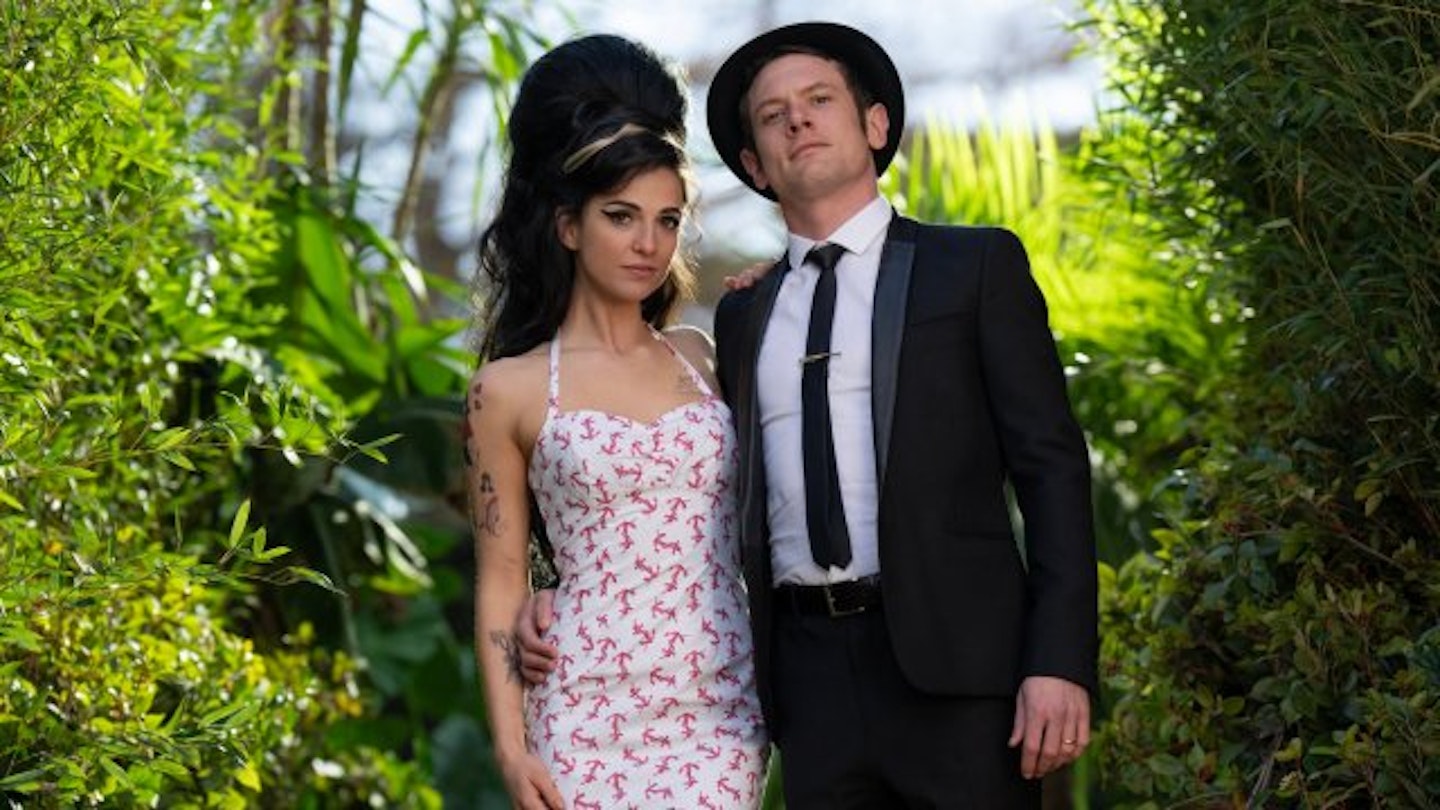Amy Winehouse only release two albums before her tragic early death, aged 27 in 2011, but the impact of her short life was titanic: she won six Grammys, had millions of album sales and released pop hits that dominated the decade. That’s why there was an impassioned reaction to the announcement of a new Winehouse biopic, Back To Black, starring Marisa Abela and Jack O’Connell. Fans feared this would be yet more exploitation of her memory. The film-makers’ intentions, however, are anything but exploitative.
‘I started to feel that the same thing was happening to her in death as in life,’ says the film’s producer, Alison Owen. ‘She didn’t have ownership of herself; everyone was fetishising and objectifying her tragedy. So I wanted to give some of that back to her, her own life and her own point of view.’
Owen worked for four years to make a film that would tell Winehouse’s story as she herself might have done: the tale of a young musician swept up into what Winehouse saw as a fairy-tale love story. Her struggles with alcohol and drug abuse inevitably feature, but the aim was to centre Winehouse’s own point of view.
The project felt more personal than most for Owen, because she’s the mother of Winehouse’s pop contemporary, Lily Allen. Through Allen, Owen had not only met Winehouse several times but knew all about the kind of tabloid harassment she endured.
‘I was very connected to Amy’s plight because I’ve been through it,’ she says. ‘There’s no danger of exaggerating that. Lily used to go outside the front door and the paparazzi were lined up shouting, “You lost your baby,” “Your boyfriend dumped you,” “Your single is down in the charts.” They tried to ram her car. Anything for a reaction.’
Her ordeal gave Owen considerable compassion for Winehouse’s family too, who have sometimes been vilified by fans. ‘As parents, you’re expected to steer your kids through that. But nobody gives you a rule book [and] it’s someone who’s at the most impulsive, impetuous time of their life.’
Owen brought Sam Taylor-Johnson onboard to direct the film, having seen her sensitive treatment of a musical biopic with the John Lennon film Nowhere Boy. ‘She’s an amazing artist, very visual and had really strong ideas.’ Taylor-Johnson then cast relative newcomer Marisa Abela (star of BBC’s Industry) as the singer, impressed that she seemed to channel her fellow north London Jewish girl from within.
‘We didn’t want to cast an existing star because the whole film is about an unknown becoming famous,’ says Owen. ‘If you start with someone very famous, that gets in the way. We were just lucky that she fit. Marisa said she couldn’t sing but, my god, she can.’ Abela sings all the Winehouse numbers throughout the film.
Jack O’Connell co-stars as Winehouse’s husband, Blake Fielder-Civil, Eddie Marsan plays dad Mitch and Leslie Manville is her grandmother, Cynthia. But when tabloid images emerged from the shoot, showing a crying Abela on a Camden street and Abela and O’Connell together on Primrose Hill, there was yet more controversy about whether this was too soon, or in good taste, or disrespectful to the late singer.
‘That was tough,’ admits Owen. ‘Sam got really annoyed, trying to protect Marisa. The irony was that we were filming a scene where Amy and Blake are being besieged by the paparazzi. Actual paparazzi were hiding in the crowd of extras [playing paparazzi]. It was surreal.’
While Fielder-Civil seems obviously bad news in hindsight, Owens did not want to take the easy route of portraying him as responsible for Amy’s drinking. ‘People just treat women differently. Nobody says, “Ooh, was it Jim Morrison’s dad’s fault or Jimi Hendrix’s mum’s fault.” They’re grown men, aged 27 just like Amy. But because she’s a woman she’s treated as if she was a child who couldn’t make her own decisions.’
The media treatment of ’00s stars now feels strikingly alien. Social media has allowed celebrities to take control of their narrative to some degree, correcting tabloid lies and posting their own pics. ‘Interest in Amy and Lily and people like that in the ’00s was at an absolute fever pitch,’ says Owen, ‘but they didn’t have any ownership of it. That changed with digital.’
It’s horrifying to us now to think of how Winehouse’s struggles were portrayed, which is proof that attitudes have changed. Arguably, her tragedy was a big part of that shift towards greater consideration for artists, especially those who are struggling. Nor is that the only sign that times are changing. A big-budget biopic about this loud, unapologetic woman, with a big-name (female!) director, probably wouldn’t have been made a decade or two ago. Back To Black is proof that cinema takes female stories more seriously now, and that the echoes of Amy Winehouse’s life and music continue to ring out loud and clear.
‘Back To Black’ is in cinemas 12 April
